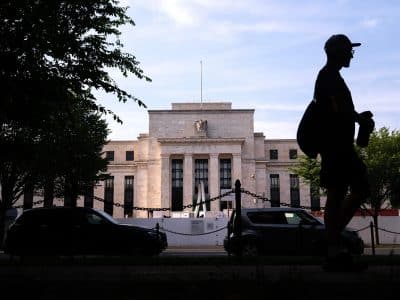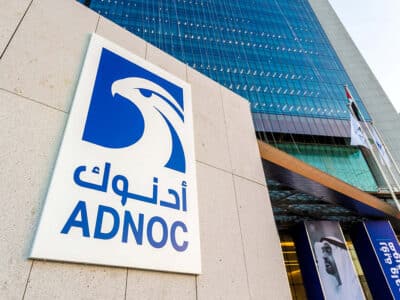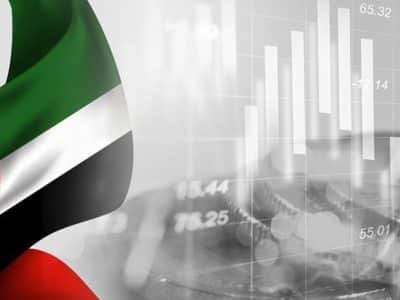Sir Richard Branson did it. The British computer tycoon Sir Alan Sugar did it twice. And Google founders Larry Page and Sergey Brin did it large. Now though, the trend for initial public offerings (IPOs) is taking over the Gulf.
Cashing in on big ideas, and the potential for big profits on stock markets that are otherwise indifferent, is the latest craze – just 17 IPOs raised over US$6.2bn (AED 22.63bn) in the first nine months of 2006 alone.
In the GCC, market listings, in terms of new values, rose by more than 45% over this period compared with the same period in 2005, and were forecast to reach US$8bn (nearly AED 30bn) by the end of December 2006, according to figures released by Gulf Capital, a UAE-based investment firm.
Meanwhile, some 134 companies are preparing to launch an IPO – and 57 of those have appointed managers to oversee the sale of shares. Another 77 have announced plans to go public, but they have yet to meet the legal requirements. “Now is the perfect time for firms to go public – there is a strong investor demand for IPOs, and the market is very liquid and offers large buy-outs,” says Aabed Al Zeera, CEO of Bahrain-based International Investment Bank.
Al Zeera is merely promoting what companies in the West have been promoting for decades, particularly during the “dot.com boom” of the late 1990s. With financial centres in Dubai, Bahrain and Qatar attempting to outdo each other for the title of “financial capital of the Middle East,” businesses of all shapes and sizes are preparing themselves for flotation, financial analysts observe.
“It’s something we have been working towards since the day I took over two years ago,” says Alex Andarakis, CEO of drinks giant Aujan. His company has seen sales double to US$360m (AED 1.3bn) over the past two years, and its debut on the Saudi stock market next year should put a billion-dollar valuation on the company. Other firms are just as eager to join the rush, even with likely valuations of no more than US$200m (AED 730m).
New value
More and more gulf companies are keen to go public – the accumulated value of all IPO launches is expected to reach a staggering US$31bn within the next three years, and so outperform the highly volatile equity market.
All this despite the region’s stock market pricing values having falling by an average of 35% since the beginning of 2006 (which calls into question the eagerness of investors to throw new money into markets which many analysts believe have yet to find their “bottom” and therefore pricing stability – although the inside wisdom prevails that getting in at the beginning through an IPO provides less volatility and long-term gain than playing established stocks which have been subject to roller-coaster trading).
Notably, regional firms are moreover valued at a very strong price earning ratios (PEs) of 25 and higher, since most of them show convincing financial results and a profound company history. “Due to the regional high liquidity in the gulf, the governments increased funding and pumped lots of money into the economy, and therefore helped to push up financial results. Also, investors are relocating their assets from the West and have two options: real estate or equity. The latter has proved to be shaky, and IPOs are an ideal alternative,” says Al Zeera.
“The PE varies according to the specific industry of the company, and often firms have hidden values such as a good reputation or an excellent management team,” he says. “The success of an IPO however purely depends on the individual company, those with an established name and promising track record will probably go public successfully,” Al Zeera observes.
Going public also offers great exit opportunities for regional firms, since most of the larger companies in the Gulf are 2nd or 3rd generation family businesses. Via IPOs, owners can cash out and balance family interests without giving up control completely.
“For many of these businesses that were started by two brothers some generations ago it makes sense to sell out now. They know its time to let go, and this is the best way to do it. The owners get a new managing director but keep the majority stake, and they of course get a nice chunk of money as a cash-out. This reduces the conflict between the brothers, but they can still oversee the operations on board level,” says Al Zeera.
Aujan is a prime example of this, having been family run company for over 100 years. Andarakis explains: “Basically the owner has decided he wants to take the company to the next phase of growth. That means he becomes an investor rather than an owner, but the rewards are that we can raise considerable amounts of money for expansion.”
Regional focus
Saudi Arabia, the largest economy in the region, is currently the biggest IPO market in the gulf, followed by the UAE and Qatar, which are the most competitive and attract the largest share of investments.
Saudi Arabia also topped the markets with US$2.3bn (AED 8.4bn) raised in the first nine months of 2006, followed by the UAE with US$1.4bn (AED 5.11bn) and Qatar with US$1.3bn (AED 4.7bn), respectively.
Notably, the Bahrain market raised a surprising US$1bn (AED 3.65bn) compared with US$6m (AED 22m) the previous year (primarily due to the IPOs of three Islamic Banks focusing on the Saudi Arabian market).
Abe Saad, MD of Shuaa Partners, says: “The number of publicly listed companies is still relatively small compared to more developed markets.
When companies, especially in the finance and telecom sector, go public the response is usually high. All sectors are interesting, but the most successful IPOs are of firms that lead within their segment, and of course brands.”
The largest launch during 2006 was the Al Rayan Bank in Qatar with a total of US$1.2bn (AED 4.38bn), followed by Emaar’s Economic City (EEC) with US$680m (AED 2.48bn) and Sipchen with US$660m (AED 2.41bn). The EEC and Sipchen together with Gulf Navigation of the UAE and the Saudi Red Housing Services raised a total of US$1.7bn (AED 6.2bn) in the third quarter of last year.
Furthermore, the public offerings put forward have gained in size based on the capital raised – with an average of US$363m (AED 1.32bn) per issue, reflecting a 27.8% year-on-year gain for the first month of 2006 versus the average of US$284m (AED 1.03bn) the year prior – a figure that could climb to US$515m (AED 1.87bn) by December 2006, essentially doubling on 2005’s average of US$262m (AED 956m).
“People rush to new IPOs, and demand still outstands supply by far.
The trend could backfire sometime, however, like in Europe and the US in the 1990s when everybody invested in IPOs and then eventually lost money,” Saad cautions. “Most IPOs have done well here…Companies are keener to launch an IPO than to go into private equity since they get a higher and instant cash out,” he explains.
Sector performers
Although the successful launch of an IPO is more company than industry specific, some sectors are still outperforming others. “Manufacturing, retail, real estate and oil and gas are usually strong, less so is, for example, technology in the Gulf region. One can generally say that the more traditional sectors are more popular in the region. Islamic banking is also at an all-time high,” observes Saad.
Al Zeera views the real estate and the banking sectors as particularly promising. “Contrary to common belief you can still make money left and right with property in the Gulf. For many years now I heard the ‘bubble theory’, and it theoretically makes sense, but in reality the demand continues to rise throughout the region.
Hot spots such as projects on Sheikh Zayed Road in Dubai or commercial spaces will always sell, no matter how much you build. Also, in Sharjah and Abu Dhabi there is still much potential,” he adds.
“In the financial sector, institutes that offer Islamic finance are also booming,” according to Al Zeera.
“Banks have been doing well for some time now, but Islamic banking is really taking off these days. Since they entered the scene 10 years ago they have conquered the market, and demand for them continues to grow.
The same applies for Islamic insurers, actually anyone offering Islamic finance.” But, he notes, “Most of these Islamic financers, however, need to get more established. If they have a track record of just three years or so they are still very young and have less market credibility.”
IPO regulation
Companies that seek to go public usually consult an investment banker to support them. They then seek the approval of the local authorities, release a memo about the managerial and financial structure and the company history, and finally launch the IPO with strong publicity to spark investors’ interest.
Saad points out, however, that some governments in the Middle East are now limiting the approvals for new IPO launches, since some of these issues and their massive oversubscriptions were partly responsible for this spring’s stock market crash. “Many investors sold their shares to raise money for new IPOs, which naturally reflected on the equities. The ministry now regulates this more tightly,” he says. “The oversubscription will, however, continue, especially in Saudi Arabia and the UAE, but not to the same extent as last year,” he predicts.
In 2005 the market witnessed both overvalued stocks and IPOs, with firms being oversubscribed many hundred times. “This trend is unlikely to continue”, says Imad Ghandor, head of research and strategy at Gulf Capital.
“An IPO today might be 10 or 20-times oversubscribed – and it will probably stay at this rate. This is still more than the global average, but yet not as exorbitant as last year,” he notes. “Investors used to put their money into anything available, equity and public offerings. I guess investors will act more wisely and less emotionally in coming years.”
“Additionally, banks were offering very convenient credit facilities – often too convenient,” observes Al Zeera. “The banks gave credit to everyone.
The Central Banks should put a leash on that, but I think they have already tightened the requirements. Yet, some commercial banks stick to their credit policies.”
Investor caution
So, what should investors finally consider when joining the IPO euphoria?
“People must not rush into any investment, but carefully study the track record of the company in question.
Most importantly, they should familiarize themselves with the management of the firm, since this can make or break an organisation,” Al Zeera says.
Saad agrees with this sentiment, noting that: “The most important thing is the firm’s market fundamentals.
And, of course, the management team. Investors need to look at every company individually and must not follow rumours, and must avoid being misled by a famous name. The big companies in Saudi Arabia will be interesting, but investors will again need to do their homework.”
IPOs are not, of course, always plane sailing. In the 1980s, airline tycoon Sir Richard Branson decided to put his group on the London Stock Exchange (LSE), and at one stage saw it hit a US$1bn (AED 3.65bn) valuation.
But it was a bitter experience, with Branson eventually being forced to buy back his own company and take it private. In an interview with Money’s sister publication, Arabian Business, he recalls: “It was a long time ago and at the time it seemed a great way to raise money and put a strong value on the business. But what some people forget is that once you do that, you lose control of the company. You are accountable to people in the ‘city’, and to your shareholders.
They call the shots. So what you might know and think is a very good idea is actually, as far as they are concerned, a very bad idea.”
Branson adds: “There are some great things to be said about doing an IPO and I would guess in the Arab world right now there are many positive reasons. Certainly there seems to be no problem raising funds. But the key aspect is what kind of business you run. If it is something that depends on creativity, then an IPO may not turn out to be the best idea.”
Several months ago, fashion guru Tommy Hilfiger admitted to Arabian Business that floating his own company on the US stock market was a mistake. He comments: “When I look back it just wasn’t the right thing to do. I was being controlled by people who looked at the share price every day, and all they wanted was shortterm growth and short-term profits. They couldn’t see the bigger picture.
The impact on my company was very negative.”
In Britain, one of the most successful “floaters” has been computer tycoon Sir Alan Sugar. He turned Amstrad into a billion dollar company, years later doing the same with Viglen Technology. He says: “There is absolutely no question that the greatest way to realise the wealth in your company is to take it to the stock market. Whatever issues there are about answering to other people, it is not only the most sensible thing to do but the only thing to do.”
Which, it would seem, is now what just about every company in the Arab world wants to do. With the likes of Damac Securities now actively pursuing venture-capital investments, with flotation as the likely “exit strategy”, this trend can only continue. So, do IPOs in the region offer investment value in the current turbulence of equity markets, the merit ultimately comes down to individual circumstances of investors, as well as the issuers involved.
Also, investors need to determine their risk tolerance, acceptable period of investment, and most importantly not fall victim to the “quick cash” mentality that undermined the mighty “dot.com” rise and fall of the 1990s.







